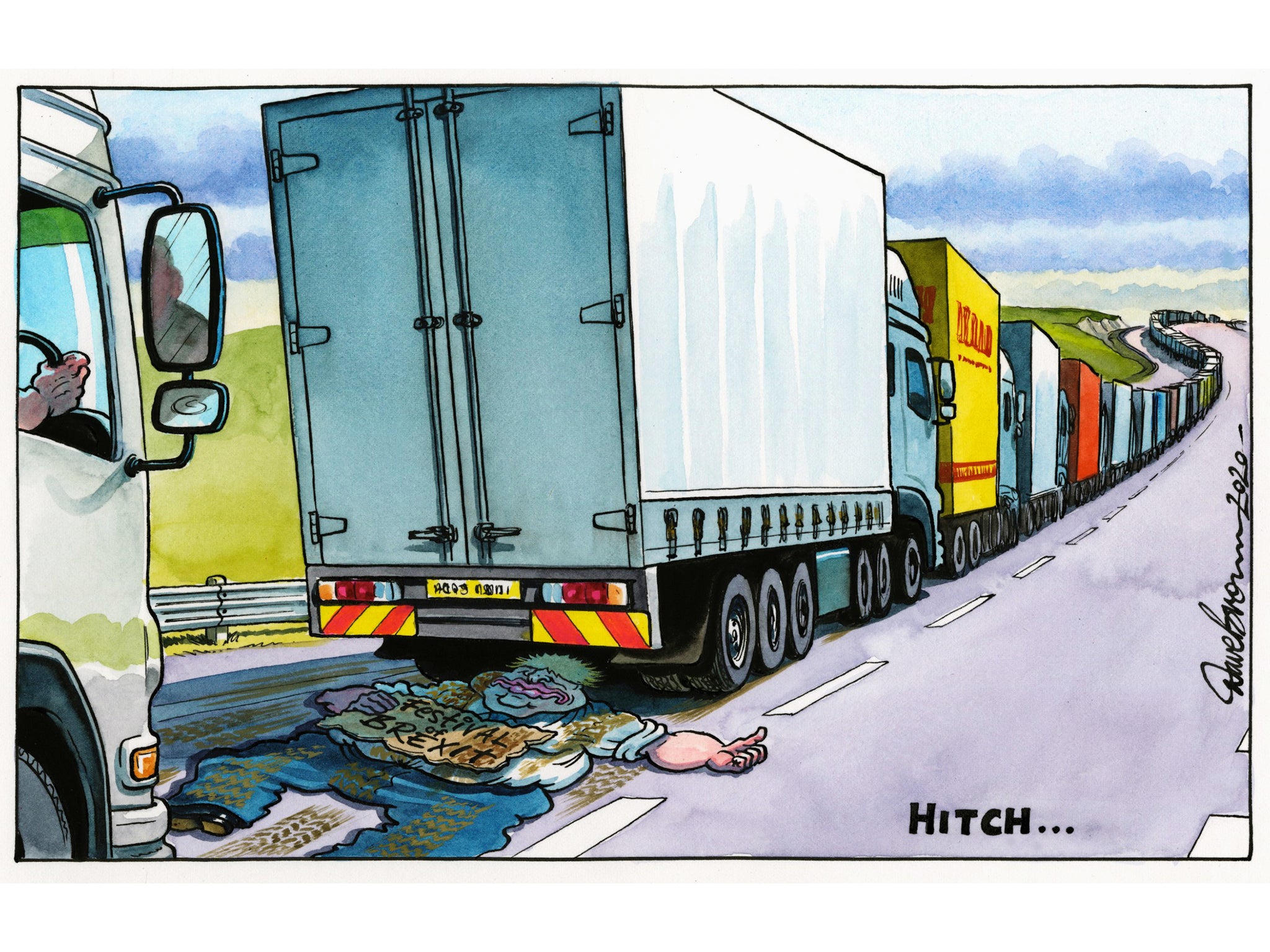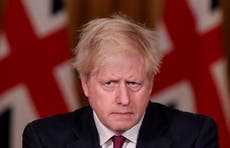It is only a couple of years since the then-Brexit secretary, Dominic Raab, infamously confessed: “We are, and I hadn’t quite understood the full extent of this, if you look at the UK and look at how we trade in goods, we are particularly reliant on the Dover-Calais crossing.”
It seems now to be an innocent moment in a more innocent time. It is worth adding what Mr Raab says next: “And that is one of the reasons why we have wanted to make sure we have a specific and very proximate relationship with the EU to ensure frictionless trade at the border.”
No one now can be in any doubt about how vital the channel ports are to commerce on both sides, and how dangerous it will be when the current “frictionless trade” comes to an end – which it will when the transition period comes to an end. As the MEP Guy Verhofstadt has pointed out, it is a timely reminder of what borders can feel like, and that the EU equally controls them.
Obviously, the complete closure of the French border is extreme, but if hauliers fail to get their post-Brexit declarations in order then their cargoes could quite conceivably be held up for hours if not days. Yet they have not been able to properly prepare their transports into the EU because the government hasn’t provided them with all the guidance they need and there is a shortage of customs agents.
Traffic entering the UK will be given “light touch” regulation, which will help, albeit at the possible cost of smuggling and people trafficking. The disincentive for any lorry driver turning up in Britain will be the uncertainty about when they’ll be able to make it home.
Testing is the answer to the immediate, Covid-related aspects of the crisis and reopening the border. Indeed the French government on Tuesday night agreed to allow EU travellers and UK citizens with EU residence who have a negative coronavirus test less than 72 hours old to enter France.
In principle, it is straightforward enough. The driver, who will mostly be alone in the can anyway, gets a negative result shortly before embarkation and uses it as a sort of coronavirus-visa. It could be easily linked to their driving licence or vehicle.
The practicalities of administering a rapid, reliable test to thousands of lorry drivers in lay-bys in Dover and strewn far down the M20 (with similar scenes at Holyhead and other ports) are, to say the least, challenging. It will probably mean sending the army in, and potentially diverting resources from current Covid-19 testing centres. Even then the process will be necessarily slow.
The authorities will need to do much more for the welfare of the marooned drivers, and to help the local council provide some measure of comfort, if not joy. For many it will be Christmas Day spent alone in the cab, far away from their families.
The lesson they will take from this incident is that so far from being frictionless, Brexit Britain will be a tricky place to get out of. That is also a lesson that the negotiators in Brussels should take to heart.





Join our commenting forum
Join thought-provoking conversations, follow other Independent readers and see their replies
Comments